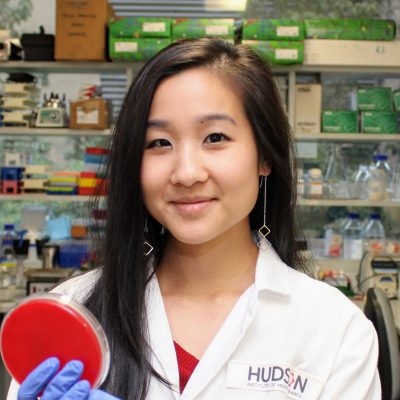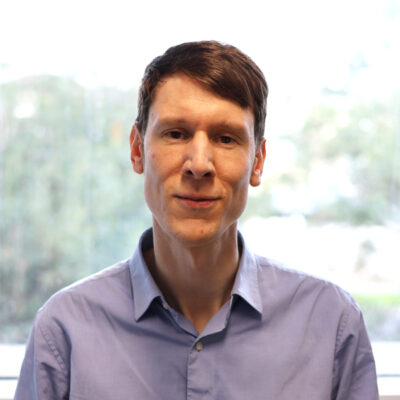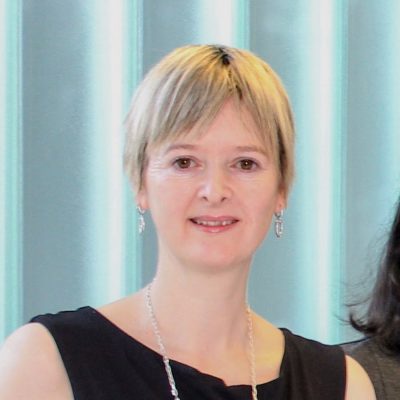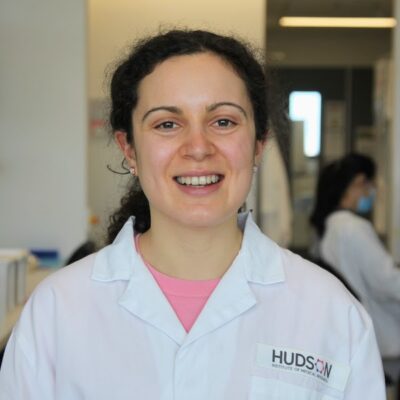Microbiota and Systems Biology
Understanding the microbiome has the potential to revolutionise medicine. However, this opportunity is limited by a lack of fundamental knowledge. The Microbiota and Systems Biology group is building this knowledge and translating breakthroughs into new patient treatments.
Overview
The gastrointestinal microbiota plays an essential, though poorly understood, role in many aspects of human biology. Emerging evidence suggests the bacterial community structure can impact diseases as diverse as autoimmune diseases, cancers, and infections. Despite this importance, many of the species of bacteria that inhabit this environment are yet to be grown in the laboratory, let alone genome sequenced or their interactions with the human body characterised.
Research within the Microbiota and Systems Biology laboratory applies genomics, computational and systems biology, microbiology, and immunology to develop an understanding of these bacteria, their genomes and reciprocal interactions with the human immune system that lead to disease or maintain health.
Using cutting edge bacterial culturing, genomics and host-transcriptomics, the Microbiota and Systems Biology lab’s research builds on a strong, fundamental understanding to develop new therapeutic options for many conditions and diseases.
Potential treatment options developed through this work range from methods of biomarker detection to guide therapy or control the spread of antimicrobial resistance within the healthcare system, through to identification of optimal bacterial communities, diets that support them and the development of conventional and live biotherapeutic based clinical interventions to improve human, animal and environmental health.
Diseases we research
Areas of focus
- Microbiome-based therapies for Inflammatory Bowel Disease
- Microbiome therapies for early life disease
- Antibiotic resistance in the microbiome
- Dietary interventions to modify the microbiome
- Understanding the structure and function of the microbiome
- Phage in the microbiome
Research Group Head | Associate Professor Samuel Forster
We all have our own unique, diverse communities of microbes, our microbiomes, which are key to our health. I work to understand these species, how we can help them and how they can help us as treatments for disease.

Meet the team

 Dr Michelle Chonwerawong
Postdoctoral Scientist
Dr Michelle Chonwerawong
Postdoctoral Scientist
 Dr Emily Gulliver
Postdoctoral Scientist
Dr Emily Gulliver
Postdoctoral Scientist
 Callum Docherty
Research Support Staff
Callum Docherty
Research Support Staff
 Emily Rutten
Research Support Staff
Emily Rutten
Research Support Staff
 Tamblyn Thomason
Research Support Staff
Tamblyn Thomason
Research Support Staff
 Jodee Gould
Research Support Staff
Jodee Gould
Research Support Staff
 Jamia Hemphill
PhD Student
Jamia Hemphill
PhD Student
 Patricia Khoo
PhD Student
Patricia Khoo
PhD Student
 Emma Saltzman
PhD Student
Emma Saltzman
PhD Student
 Sean Solari
PhD Student
Sean Solari
PhD Student
 Remy Young
PhD Student
Remy Young
PhD Student
 Sara Di Simone
PhD Student
Sara Di Simone
PhD Student
News from the lab
Student opportunities

Collaborators

Publication highlights


